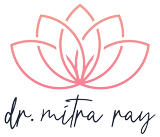Q: Why is there carrageenan in the new vegan capsules? I’ve read that it is not a safe additive.
Once again folks, food is politics and the negative articles about carrageenan began because ‘plant milks’ compete with the dairy industry. So suddenly Almond milk came under attack on the Internet and people came to think negatively about carrageenan. Let’s look at some facts.
- Derived from red seaweed commonly found in the Atlantic Ocean, carrageenan is a gum used to thicken foods and emulsify liquids. It’s a plant-based substitute for gelatin and binds together ingredients in nondairy milk alternatives, preventing the product from separating as it sits on shelves. So if you want vegan capsules that work to hold Juice PlusÒpowders, carrageenan is a very good choice. And there is 1.2 mg of carrageenan per capsule.
- There are actually two different kinds of carrageenan (which is derived from red algae): degraded and un-degraded carrageenan. And believe it or not, they’re actually very different compounds and should be treated as such. Un-degraded is approved for human consumption while degraded (also known as poligeenan) is not. You see, the 2001 animal studies showing the link with cancer used the degraded version, poligeenan, in high doses, thus giving un-degraded carrageenan a worse wrap than it should.*
Adapted from: Huffington Post Article
So, there are no human or animal studies using un-degraded carrageenan as harmful. Un-degraded carrageenan is what is used in food products such as plant milks and Juice Plus.
- Last April, the Natural Products Association (NPA), the oldest and largest trade association in the natural products industry representing over 1,400 members accounting for almost 10,000 retail, manufacturing, wholesale, and distribution locations of natural products, including foods, dietary supplements, and health/beauty aids, sent a position paper to the National Organics Program (part of USDA). Here is a summary from NPA.
Executive Summary
- Carrageenan should be permitted in organic foods and organic infant formula because it is a safe direct food additive when used at levels presently found in foods
- In the May 3, 2013 proposed rule from USDA AMS, carrageenan was allowed as a non-synthetic substance permitted in organic foods
- USDA AMS rejected the NOSB’s attempt to exclude carrageenan from organic infant formula in the proposed rule
- Carrageenan has a long history of safe use in foods
- Carrageenan is allowed under the 21 CFR 172.620 as a direct food additive
- Carrageenan is considered Generally Recognized As Safe (GRAS) in accordance with 21 CFR 182.7255
- The US Food and Drug Administration (FDA), the nation’s leading authority on food safety issues, has never prohibited the use of carrageenan in infant formula. The FDA’s Office of Nutrition and Labeling permit it for use in infant formula.
- The World Health Organization’s (WHO) Joint Expert Committee of Food Additives
- (JECFA) concluded it is safe for food use and that it is not necessary to specify an acceptable daily intake (ADI) limit
- Carrageenan has received the highest rating granted by JECFA for any food ingredient
- The European Economic Community recognized carrageenan for its safety and utility as an approved emulsifier, stabilizer, thickening and gelling agent
- Carrageenan is a natural product and is not carcinogenic, inflammation-provoking, nor significantly absorbed by the gut
- Oral feeding studies using non-human primate animal models (baboons) have shown no adverse effects when raised from birth to 112 days on infant formula containing up to 5-fold the level of carrageenan typically present in human infant formula
Download This Article HERE:
